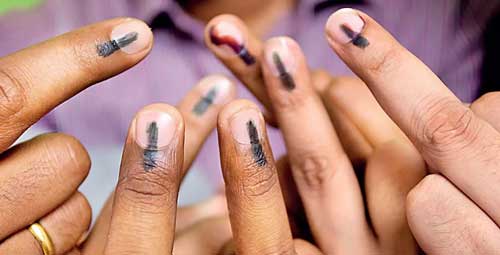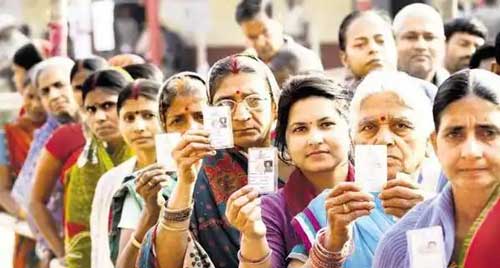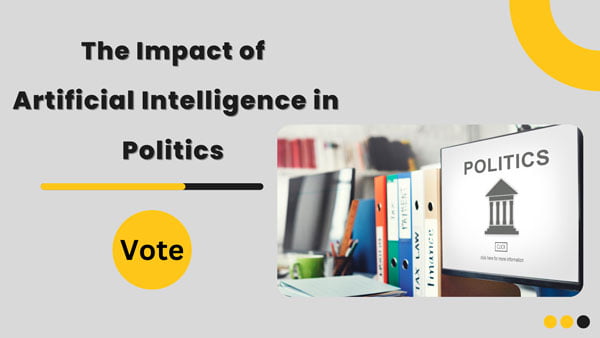In recent years, the influence of Artificial Intelligence (AI) on politics has significantly increased. AI, with its ability to process vast amounts of data and make data-driven predictions, is reshaping the political landscape in ways we could not have predicted ten years ago. In this comprehensive article, we will delve into the profound impact of AI in politics, covering various aspects such as:
Several ways in which AI is impacting politics

- Data Analysis and Voter Targeting: AI algorithms can analyze vast amounts of data from various sources, including social media, surveys, and voter registration records. Political campaigns can use this information to identify potential supporters, predict voter behavior, and customize their messaging to specific demographics. This optimizes their outreach efforts.
- Predictive Analytics: AI-driven predictive analytics assist political parties and candidates in making informed decisions about resource allocation, issue prioritization, and the development of effective campaign strategies. This enables more efficient campaigning and improved resource allocation.
- Social Media Monitoring: Artificial Intelligence (AI) can monitor various social media platforms to determine public sentiment, track popular topics, and identify potential issues that could impact a campaign. Politicians employ sentiment analysis to adapt their messaging in real time and address public concerns.
- Chatbots and Virtual Assistants: Chatbots and virtual assistants can interact with constituents and provide information on policies, events, and campaign updates on political websites and social media. This improves constituent engagement by answering common questions in a clear and concise manner. Consistency in the use of specific terms and a neutral tone without personal bias or opinion are important for effective communication and better understanding. Furthermore, using a logical structure with headings, bullet points, and numbered lists improves the coherence and clarity of the text. Chatbots and virtual assistants can interact with constituents and provide information on policies, events, and campaign updates on political websites and social media.
- Policy Analysis: AI can aid policymakers by analyzing intricate data sets and forecasting the potential impact of policy alterations. This enables evidence-based decision-making and the creation of more efficient policies.
- Speech and Text Analysis: AI-powered tools can analyze speeches, debates, and written content to assess tone, sentiment, and key themes. This information may have value for evaluating public perception and adjusting communication strategies.
- Campaign Finance Monitoring: AI algorithms could aid in monitoring campaign finances and identifying potential irregularities or violations of campaign finance laws, thus promoting transparency and accountability.
- Election Security: AI plays a role in enhancing election security by identifying and mitigating potential cybersecurity threats and vulnerabilities in voting systems.
- Constituent Feedback and Surveys: AI-driven surveys and feedback mechanisms can collect opinions and feedback from constituents. This data helps politicians understand public sentiment on specific issues and make informed decisions.
- Redistricting and Gerrymandering: AI tools can be used to analyze voting patterns and propose fairer and more representative electoral districts, reducing the impact of gerrymandering.
- Public Services Optimization: In governance, AI can be employed to optimize the delivery of public services, such as traffic management, resource allocation, and emergency response, leading to more efficient and responsive government operations.
- Language Translation and Multilingual Communication: AI-powered translation tools enable politicians to communicate with constituents who speak different languages, broadening their reach and ensuring inclusivity.
- Deepfake Detection: With the rise of deepfake technology, AI is used to detect manipulated media and fake videos that could be used to spread misinformation during political campaigns.
The potential advantages and pitfalls of using AI in politics
- AI can help to make political decision-making more efficient and effective. AI can analyze large amounts of data to identify trends and patterns, which can help politicians to make better decisions. For example, AI can be used to analyze voter data to identify swing voters or to target campaign messages to specific audiences.
- AI can assist in improving transparency and accountability in government. AI can be used to track government spending and to identify potential conflicts of interest. This can help to ensure that the government is accountable to the people.
- AI can help to reduce corruption and fraud in elections. AI can be used to monitor elections and to identify potential fraud. This can help to ensure that elections are fair and free.
- AI can help to engage citizens more effectively in the political process. AI can be used to create platforms for citizens to participate in the political process. This can help to make the government more responsive to the needs of the people.
- AI can help to improve the delivery of government services. AI can be used to automate tasks, such as processing paperwork or answering customer service questions. This can free up government workers to focus on more important tasks.
- AI could be used to manipulate public opinion or target voters with misinformation. This is a major concern, as AI could be used to spread false information or propaganda in order to influence voters.
- AI could be used to discriminate against certain groups of people. For example, AI could be used to target political messages to specific groups of people based on their race, religion, or other demographic factors.
- AI could be used to suppress dissent or crackdown on political opponents. This is a serious concern, as AI could be used to monitor and track political opponents, or even to silence them altogether.
- AI could lead to the automation of jobs in the political sector, displacing human workers. This is a potential risk, as AI could be used to automate tasks that are currently performed by human workers, such as voter registration or campaign management.
How AI Tools are Transforming Politics

Data Analytics
AI can be used to analyze large amounts of data to identify trends and patterns. This data can be used to inform political decisions, such as where to allocate resources or how to target campaigns.
For example, the Indian National Congress used AI to analyze voter data to identify swing voters and target them with personalized messages in the 2019 Lok Sabha elections. Furthermore, the Obama campaign used AI to analyze voter data to identify swing voters and target them with personalized messages.
Social Media
AI can be used to monitor social media activity to track public opinion and identify potential threats. It can also be used to target political messages to specific audiences.
For example, the Bharatiya Janata Party used AI to target political messages to voters on Twitter during the 2019 Lok Sabha elections. In addition, the Cambridge Analytica scandal involved the use of AI to target political messages to voters on Facebook.
Chatbots
AI chatbots can be used to answer questions from voters, provide information about political candidates, and even register voters.
For example, the Election Commission of India has launched a chatbot called MyVoterHelpline to help voters with election-related queries, and another App called MyGov AI to help citizens with government-related queries.
Virtual Assistants
AI virtual assistants can be used to help voters with tasks such as finding polling places and getting information about election results.
For example, Amazon Alexa can be used to ask questions about elections and get information about candidates.
Machine Learning
AI machine learning can be used to develop models that predict voter behavior. This information can be used to target campaigns and improve the chances of winning elections. For example, the company Indicus Analytics uses AI to predict election results in India.
Natural Language Processing
AI natural language processing can be used to analyze text data, such as news articles or social media posts. This data can be used to identify trends and patterns or to generate political messages.
For example, the company PoliticalBot uses AI to generate political messages that are tailored to specific audiences.
Computer Vision
AI computer vision can be used to analyze images and videos. This data can be used to identify objects or people or to track the movement of people or objects.
For example, the company Detectify uses AI to detect fake news articles.
It is important to note that the use of AI in politics is not without its risks. As mentioned earlier, AI could be used to manipulate public opinion or target voters with misinformation. It is important to be aware of these risks and to take steps to mitigate them.
The Ethical Implications of AI in Politics
- Transparency: It is important to be transparent about how AI is being used in politics. This means disclosing the data that is being used, the algorithms that are being applied, and the results that are being generated.
- Fairness: AI should be used in a fair and impartial manner. This means avoiding discrimination against certain groups of people or political viewpoints.
- Accountability: There should be accountability for the use of AI in politics. This means having clear rules and regulations governing the use of AI, and having mechanisms in place to hold those responsible for any misuse accountable.
Conclusion
The rise of AI in politics is a double-edged sword. On the one hand, AI has the potential to make political decision-making more efficient and effective, improve transparency and accountability in government, and reduce corruption and fraud in elections. On the other hand, AI could also be used to manipulate public opinion, discriminate against certain groups of people, and suppress dissent. It is important to carefully consider the potential benefits and risks of using AI in politics before making widespread adoption.
Ultimately, the impact of AI in politics will depend on how it is used. If AI is used responsibly and ethically, it has the potential to make our political system more fair and efficient. However, if AI is used irresponsibly or maliciously, it could have a negative impact on our democracy.

